New era: AI and digital technologies for sustainable health systems (WHA76 side event)
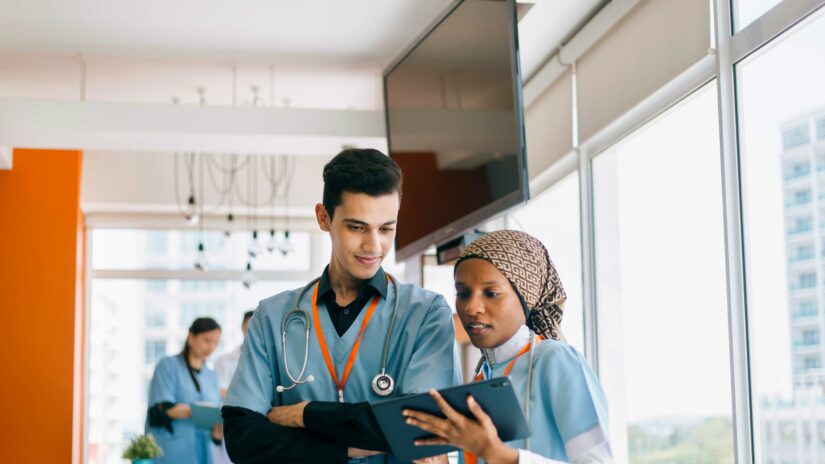
Date
26 May 2023
Time
17:30-19:00 CET
Hosts
IFPMA, IPSF, and Governing Health Futures 2030: Growing up in a Digital World
Location
Restaurant Vieux-Bois
Av. de la Paix 12
1202 Genève, Switzerland
Attendance
This event has now passed. To browse our upcoming events click here.
On the margins of the 76th World Health Assembly, HYPER, IPSF, and GHFutures2030 are bringing together stakeholders actively working in digital health to discuss how the use of big data, AI, and digital technologies not only strengthen sustainable health systems but also foster health literacy, improving general health outcomes and tackling health disparities for sustainable health and health systems.
Across the world, countries are racing to harness digital technologies and data to improve their health systems. However, for most countries, the potential of digitalization to advance health and the SDGs is not being realized because of digital divides, power imbalances within the digital health ecosystem, and persistent gender and other societal inequalities.
At the same time, digital health plays a role in bridging health equity gaps by improving accessibility and efficiency of healthcare services. For example, telehealth services and wearable devices have enabled providers to manage care during the pandemic, AI has created opportunities to pioneer therapies and vaccines, and big data has helped reduce medical errors and aid in preventive care.
Young people are the next generation of leaders within the healthcare sector – at the forefront of developing, integrating, and governing digital health solutions to promote health and prevent, diagnose, and treat diseases worldwide. As technologies get closer to patients, complex solutions demand healthcare professionals become ambassadors of digital health tools that reflect the health futures they want: those that are more equitable and designed for impact.
Join us for this captivating conversation on how young leaders in the healthcare sector are thinking through and applying digital technologies, data, and AI to transform health systems and accelerate our collective pursuit of universal health coverage.
Event recording
Address
Restaurant Vieux-Bois
Av. de la Paix 12
1202 Genève, Switzerland
Speakers
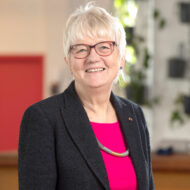
Professor Ilona Kickbusch is co-chair of the Lancet and Financial Times Commission on Governing health futures 2030: Growing up in a digital world. She is the Founder of the Global Health Centre at the Graduate Institute in Geneva and a visiting professor at the University of Geneva.
Her areas of expertise include the political determinants of health, health in all policies, and global health. She advises countries on their global health strategies, trains health specialists, and is involved in German G7 and G20 health activities.
She publishes widely and serves on various commissions and boards. Ilona is a member of the Global Preparedness Monitoring Board and former Co-Chair of UHC 2030. She has had a distinguished career with the WHO. She was a key instigator of the Ottawa Charter for Health Promotion and WHO’s Healthy Cities Network and has remained a leader in this field, most recently advising on WHO’s activities related to Health in the SDGs. She was the Director of the Global Health Division at Yale University School of Public Health and responsible for the first major Fulbright Programme on global health.
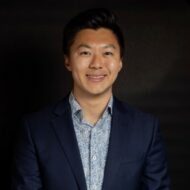
Brian Li Han Wong is a consultant, global public health practitioner, and multidisciplinary researcher interested in ageing and life course, digital (public/mental) health, global health governance, public health workforce capacity building, meaningful youth engagement, and pandemic preparedness & response.
His current work is with the European Observatory on Health Systems & Policies, where he supports digital health, primary health care (PHC), human resources for health, and social participation activities. He sits on the Steering Committee for EUPHA’s Digital Health Section, Chair the Board of Trustees for UK Model WHO, and is a member of the WHO Youth Council and ASPHER COVID-19 and Digital Public HealthTask Forces. He also acts as a Regional Youth Champion for The Lancet & Financial Times Commission on Governing Health Futures 2030, for which he was previously Youth Officer.
Brian’s previous role was as Scientific Community Manager for The International Digital Health & AI Research Collaborative (I-DAIR), a Geneva-based scientific collaboration & diplomacy platform that aims to enable and improve access to inclusive, impactful, and responsible research into digital health and AI for health worldwide, with a focus on low- and middle-income countries.
Since concluding his doctoral studies in cardiovascular science at UCL, Brian has gone on to complete a social innovation fellowship with Year Here, diplomatic training from the European Academy of Diplomacy, and Harvard Medical School’s Global Clinical Scholars Research Training program. He also hold an MSc in epidemiology from the London School of Hygiene & Tropical Medicine and a B.Sc (Hons.) in biomedical science with a minor in music from uOttawa. In parallel with his work, Brian is pursuing a PhD in public health workforce development at Maastricht University and an MBA from Quantic School of Business and Technology.
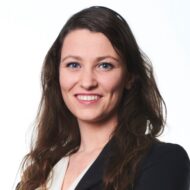
Sarah Tuytschaever is passionate about harnessing the power of innovation to improve healthcare access and quality while positively impacting patients’ lives.
She holds the role of global digital care transformation lead at UCB, a biopharmaceutical company headquartered in Brussels. In this position, she explores innovative digital solutions to accelerate disease diagnosis, aiming to enhance patient outcomes.
Sarah was previously working as a strategy consultant at Deloitte, where she focused on supporting European and international institutions. She holds a Master in Public Management from Ghent University.
Through her commitment to advancing digital health, Sarah is actively contributing to the ongoing transformation of patient care. Her work is focused on creating public-private partnerships for shaping a future where healthcare is more accessible, efficient, and patient-centred.
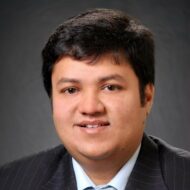
Sameer Pujari led the development and negotiations with 194 countries on the WHO Global Strategy on Digital Health and is currently leading all initiatives on Ai for health at the Digital Health and Innovations Department of WHO. He is also the Co-chair – WHO and ITU Focus group on AI4 Health.
Sameer joined WHO headquarters in Geneva in Feb 2008. He has worked extensively on digital health, including mHealth, big data, and AI, and set up several digital global initiatives. He has provided country support in over 75+ countries across all WHO regions and has provided oversight for work with several partners. He has contributed to over 100 publications, guidance, and reports on digital health and Ai and is a core digital enthusiast .
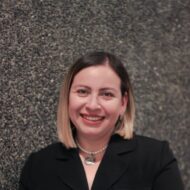
Joseline Carias Galeano is a project management specialist, promoter of digital transformation, and digital health and networking activist. She is currently the General Manager at RECAINSA, an organization formed by Latin American professionals and volunteers created with the intention of supporting national and regional digital health strategies and generating spaces for the exchange of experiences and best practices in both the public and private sectors. She is co-creator of different projects and initiatives aimed at professional women in the region with the objective of achieving greater participation of Latin American women in the field of digital health.
She is also an expert member of the Digital Health working group of the ITU Broadband Commission and UNESCO, an expert member of the Technical Committee of the Global Digital Health Index, a member of the Digital Health Exemplars Group, and other global expert groups, as well as Co-Chair of the Policy Circle in the Transform Health coalition. In 2021 and 2022, she was selected by the Inter-American Development Bank (IDB) and the Pan American Health Organization (PAHO) as one of the Latin American Digital Health Champions in the initiative created with the same name. Joseline strongly believes that the participation of women is vital to guarantee the processes of development and transformation of human society.
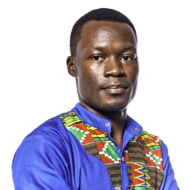
Conrad Tankou is a dynamic medical doctor hailing from Cameroon, whose passion for technology and healthcare has led him to become a recognized name in the field of health innovations. He strongly believes that technology solutions tailored to the African context can help solve many of the continent’s health challenges. He is the founder of GIC Space, a social venture that develops and promotes cutting-edge, cost-effective healthcare solutions adapted to the African context.
GIC Space’s flagship product, GICMED, targets breast and cervical cancers with ground-breaking technologies, and has earned numerous international accolades.
With his experience in medical practice and technology, Conrad hopes to bridge the gap between the rich and poor in accessing quality healthcare, particularly in underserved communities. His tireless efforts have already impacted thousands of lives, and he aspires to continue being a pillar of hope for standard and affordable healthcare for all.
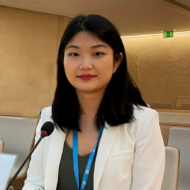
Yifan Zhou is a clinical hospital pharmacist, and the current Chairperson of External Relations at the International Pharmaceutical Students’ Federation.
Yifan has an immense interest in digital health and technology integration in pharmacy. She was the past Executive Co-Director of IMAINE Clinic, a student-run interprofessional clinic that provides care to vulnerable populations in Toronto, Canada. Yifan led the transformation of the clinic into a virtual clinic to continue providing care during the COVID-19 pandemic. The team also partnered with Think Research to create a digital platform to enable a virtual workflow. It was featured on major Canadian news outlet CBC, and on University of Toronto Faculty of Pharmacy’s website. To bridge the digital gap for the patient population, IMAGINE Clinic was open to provide internet and computer access to those in need. IMAGINE clinic is a sustainable local solution to leverage healthcare trainees and provide care to marginalized communities.
Yifan also interned at a pharmacy-technology company where she created an automated flu form that served over 700,000 patients in Canada. This new digital platform, introduced at the beginning of the pandemic, has transformed the way community pharmacies operate in Canada.


